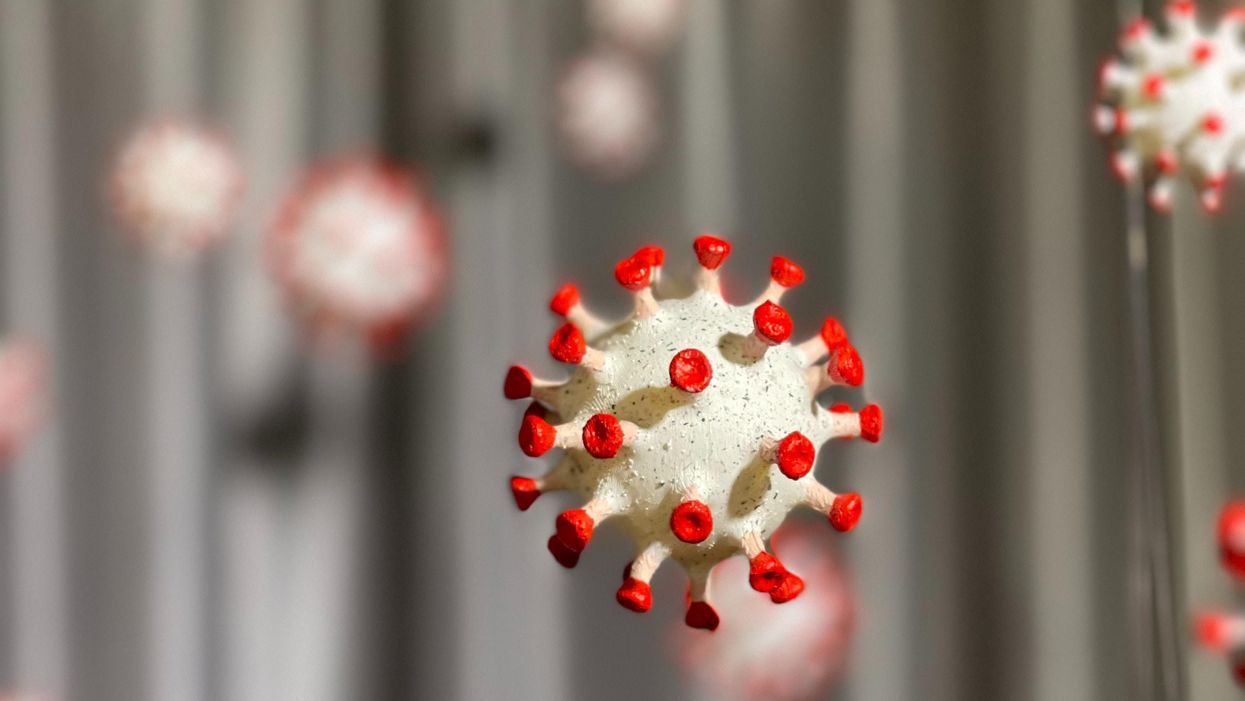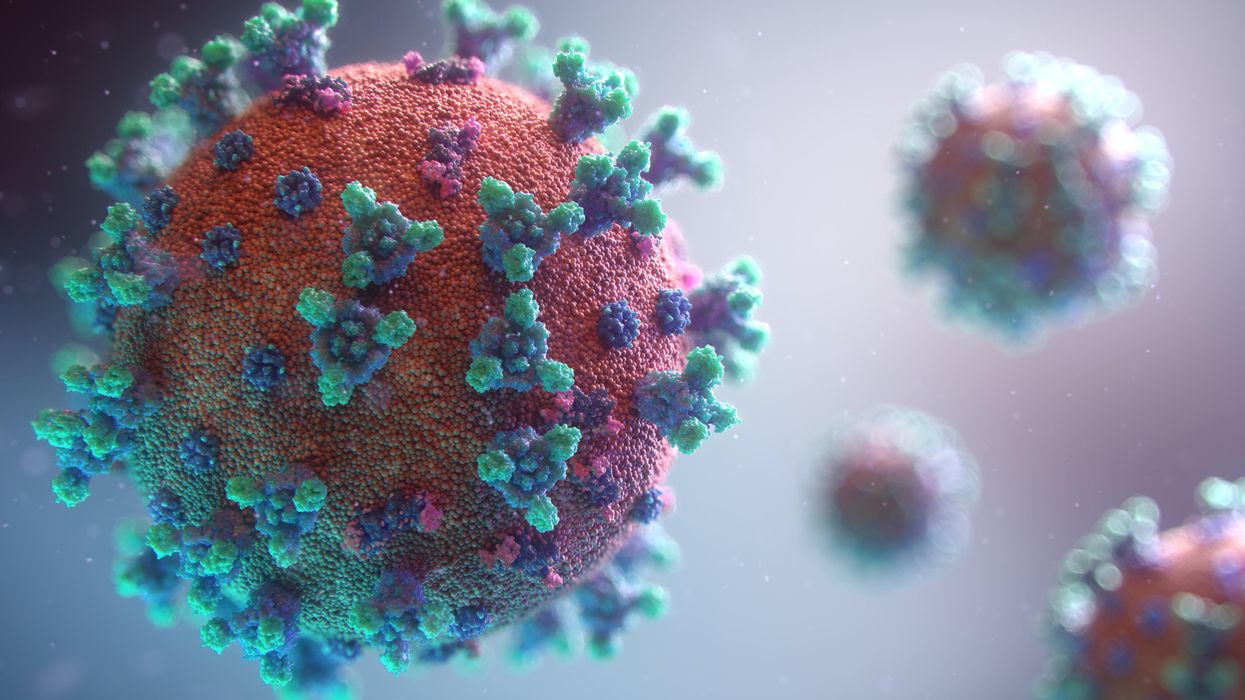Meet Dr. Renee Wegrzyn, the first Director of President Biden's new health agency, ARPA-H

Today's podcast guest, Dr. Renee Wegrzyn, directs ARPA-H, a new agency formed last year to spearhead health innovations. Time will tell if ARPA-H will produce advances on the level of its fellow agency, DARPA.
In today’s podcast episode, I talk with Renee Wegrzyn, appointed by President Biden as the first director of a health agency created last year, the Advanced Research Projects Agency for Health, or ARPA-H. It’s inspired by DARPA, the agency that develops innovations for the Defense department and has been credited with hatching world-changing technologies such as ARPANET, which became the internet.
Time will tell if ARPA-H will lead to similar achievements in the realm of health. That’s what President Biden and Congress expect in return for funding ARPA-H at 2.5 billion dollars over three years.
Listen on Apple | Listen on Spotify | Listen on Stitcher | Listen on Amazon | Listen on Google
How will the agency figure out which projects to take on, especially with so many patient advocates for different diseases demanding moonshot funding for rapid progress?
I talked with Dr. Wegrzyn about the opportunities and challenges, what lessons ARPA-H is borrowing from Operation Warp Speed, how she decided on the first ARPA-H project that was announced recently, why a separate agency was needed instead of reforming HHS and the National Institutes of Health to be better at innovation, and how ARPA-H will make progress on disease prevention in addition to treatments for cancer, Alzheimer’s and diabetes, among many other health priorities.
Dr. Wegrzyn’s resume leaves no doubt of her suitability for this role. She was a program manager at DARPA where she focused on applying gene editing and synthetic biology to the goal of improving biosecurity. For her work there, she received the Superior Public Service Medal and, in case that wasn’t enough ARPA experience, she also worked at another ARPA that leads advanced projects in intelligence, called I-ARPA. Before that, she ran technical teams in the private sector working on gene therapies and disease diagnostics, among other areas. She has been a vice president of business development at Gingko Bioworks and headed innovation at Concentric by Gingko. Her training and education includes a PhD and undergraduate degree in applied biology from the Georgia Institute of Technology and she did her postdoc as an Alexander von Humboldt Fellow in Heidelberg, Germany.
Dr. Wegrzyn told me that she’s “in the hot seat.” The pressure is on for ARPA-H especially after the need and potential for health innovation was spot lit by the pandemic and the unprecedented speed of vaccine development. We'll soon find out if ARPA-H can produce gamechangers in health that are equivalent to DARPA’s creation of the internet.
Show links:
ARPA-H - https://arpa-h.gov/
Dr. Wegrzyn profile - https://arpa-h.gov/people/renee-wegrzyn/
Dr. Wegrzyn Twitter - https://twitter.com/rwegrzyn?lang=en
President Biden Announces Dr. Wegrzyn's appointment - https://www.whitehouse.gov/briefing-room/statement...
Leaps.org coverage of ARPA-H - https://leaps.org/arpa/
ARPA-H program for joints to heal themselves - https://arpa-h.gov/news/nitro/ -
ARPA-H virtual talent search - https://arpa-h.gov/news/aco-talent-search/

Dr. Renee Wegrzyn was appointed director of ARPA-H last October.
Dec. 17th Event: The Latest on Omicron, Boosters, and Immunity
The Omicron variant poses new uncertainty for the vaccines, which four leading experts will address during our virtual event on December 17th, 2021.
This virtual event will convene leading scientific and medical experts to discuss the most pressing questions around the new Omicron variant, including what we know so far about its ability to evade COVID-19 vaccines, the role of boosters in eliciting heightened immunity, and the science behind variants and vaccines. A public Q&A will follow the expert discussion.
EVENT INFORMATION:
Date: Friday Dec 17, 2021
2:00pm - 3:30pm EST
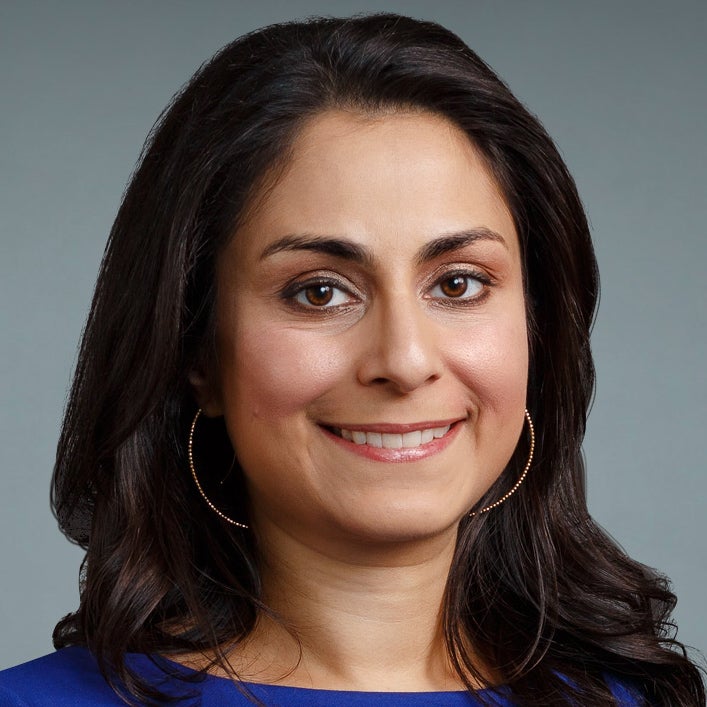
Dr. Céline Gounder, MD, ScM, is the CEO/President/Founder of Just Human Productions, a non-profit multimedia organization. She is also the host and producer of American Diagnosis, a podcast on health and social justice, and Epidemic, a podcast about infectious disease epidemics and pandemics. She served on the Biden-Harris Transition COVID-19 Advisory Board.
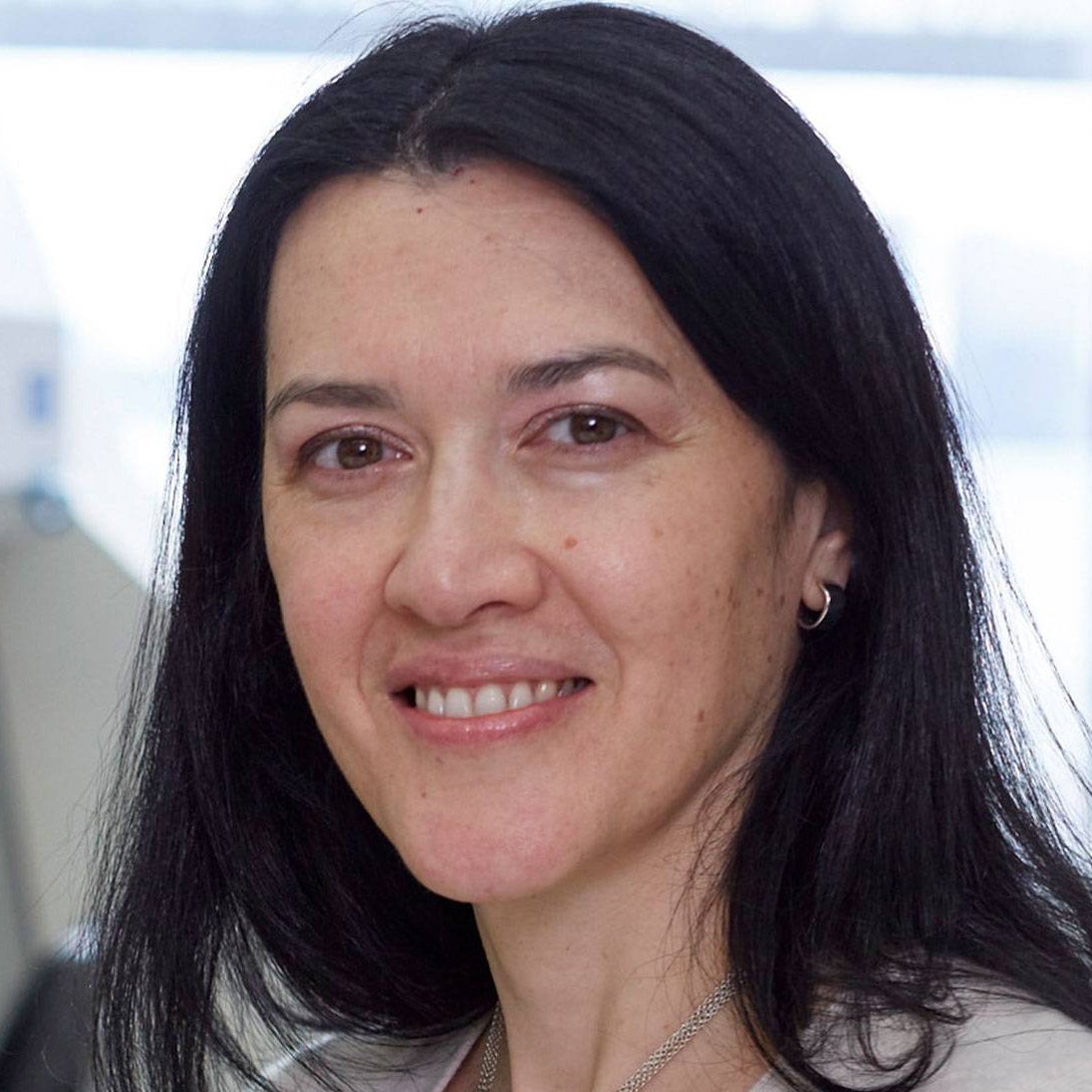 Dr. Theodora Hatziioannou, Ph.D., is a Research Associate Professor in the Laboratory of Retrovirology at The Rockefeller University. Her research includes identifying plasma samples from recovered COVID-19 patients that contain antibodies capable of neutralizing the SARS-CoV-2 coronavirus.
Dr. Theodora Hatziioannou, Ph.D., is a Research Associate Professor in the Laboratory of Retrovirology at The Rockefeller University. Her research includes identifying plasma samples from recovered COVID-19 patients that contain antibodies capable of neutralizing the SARS-CoV-2 coronavirus.
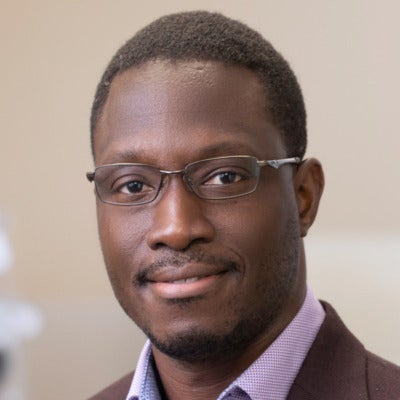
Dr. Onyema Ogbuagu, MBBCh, is an Associate Professor at Yale School of Medicine and an infectious disease specialist who treats COVID-19 patients and leads Yale’s clinical studies around COVID-19. He ran Yale’s trial of the Pfizer/BioNTech vaccine.
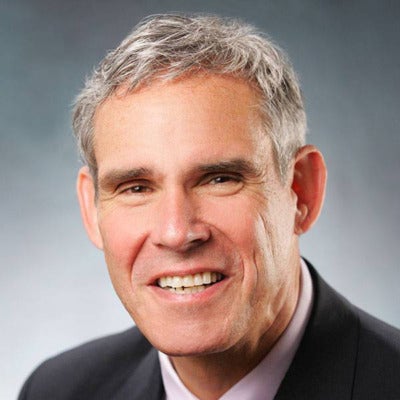
Dr. Eric Topol, M.D., is a cardiologist, scientist, professor of molecular medicine, and the director and founder of Scripps Research Translational Institute. He has led clinical trials in over 40 countries with over 200,000 patients and pioneered the development of many routinely used medications.
This event is the fourth of a four-part series co-hosted by Leaps.org, the Aspen Institute Science & Society Program, and the Sabin–Aspen Vaccine Science & Policy Group, with generous support from the Gordon and Betty Moore Foundation and the Howard Hughes Medical Institute.
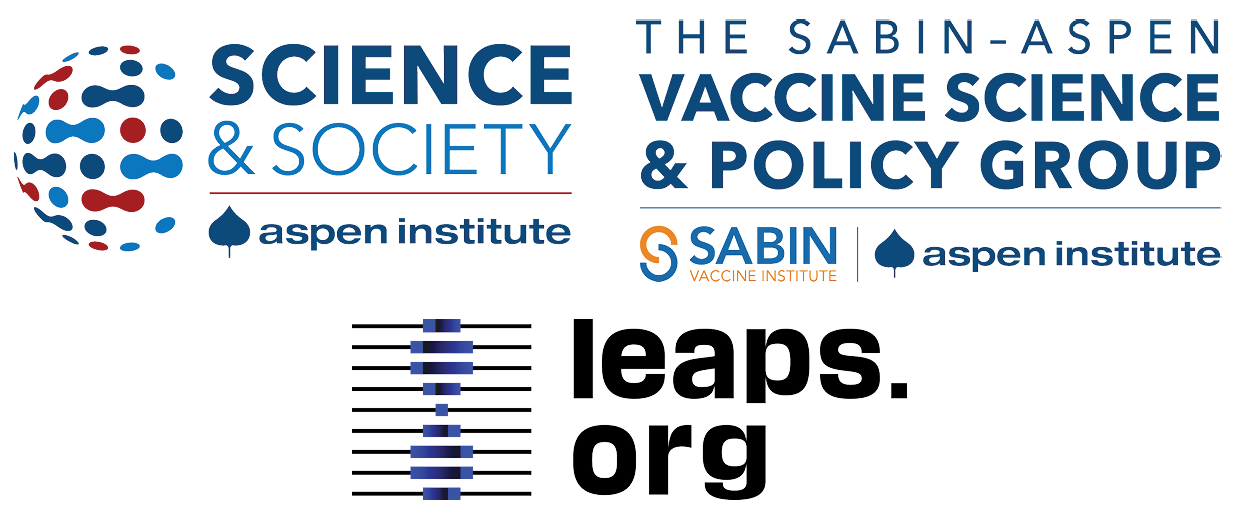
Kira Peikoff was the editor-in-chief of Leaps.org from 2017 to 2021. As a journalist, her work has appeared in The New York Times, Newsweek, Nautilus, Popular Mechanics, The New York Academy of Sciences, and other outlets. She is also the author of four suspense novels that explore controversial issues arising from scientific innovation: Living Proof, No Time to Die, Die Again Tomorrow, and Mother Knows Best. Peikoff holds a B.A. in Journalism from New York University and an M.S. in Bioethics from Columbia University. She lives in New Jersey with her husband and two young sons. Follow her on Twitter @KiraPeikoff.
7 Things to Know about the U.S.’s Capability to Detect Omicron
A visualization of the original coronavirus causing COVID-19, which has now been detected across the globe in a highly mutated form called Omicron.
If the new variant Omicron isn’t here already – which many experts suspect that it is – it will be soon. While we wait for scientists to conduct the necessary research to characterize its transmissibility, potential fitness at immune evasion, and disease severity, we wanted to give Leaps.org readers a window into how the U.S. is positioned to detect the variant. So we spoke to Kelly Wroblewski, director of infectious diseases at the Association of Public Health Laboratories, a membership organization that represents state and local government health labs in the United States. Here are seven insights she shared.
1) If you test positive for COVID-19 with a standard PCR test, the diagnostic report will not tell you which variant you have. There are no diagnostic tests available for your doctor to order to identify variants. To find out the variant, the specimen must be sent to a commercial, clinical, academic, or public health laboratory for genetic sequencing.
2) Today, the U.S. sequences about 5 to 10 percent of all diagnostic specimens that test positive for SARS-CoV-2 in order to determine which variants are circulating and where. Last week nationally, for example, labs sequenced about 80,000 samples. This represents a massive increase from last year at this time, when labs were only sequencing about 8,000 specimens per week. Currently, 99.5 percent of circulating SARS-CoV-2 virus in the U.S. is the Delta variant.
3) The U.S. is “very well prepared” to detect Omicron, Wroblewski says, “particularly compared to where we were when the Alpha variant, or B117 first emerged.” Of the hunt for Omicron, she adds, “it’s very reminiscent of that time, except we are doing so much more sequencing and we have so much better coverage with our sequencing geographically, and we're doing it in a much more timely way. We have the ability to find emerging variants that are circulating in 0.01 percent of the population.”
4) Deciding which specimens to sample is not totally random. Samples that have more virus are likely to lead to better sequencing results. Labs also look to have a diverse set of representative samples, meaning across geographic regions and across gender, race, ethnicity, and age groups. Clinical diversity is also important, such as including pregnant women, severe in-patient cases, mild cases, etc.
5) Sequencing more is not necessarily better to find Omicron faster. “We will increase the number of sequences to a certain extent,” Wroblewski says. “Where we exhibit some caution is doing that indiscriminately isn’t the most effective use of time and resources. The important thing is to try to find Omicron, and if you increase your testing capacity too much, right now, it's still predominantly Delta in the U.S. by a long shot. So you’re mostly going to sequence Delta and you run the risk of delaying your discovery of Omicron, if you focus solely on increasing sequencing.”
So besides just ramping up the sheer numbers of sequencing, diagnostic labs across the country are now advised to preferentially use a certain PCR test made by Thermo Fisher that can help hasten the detection of Omicron. It turns out that Omicron’s specific mutations in the Spike protein mean that the Spike is not picked up on this PCR test, which yields a type of result called an S-gene target failure. Yet the test will still accurately pick up a COVID-19 diagnosis, because it detects two other gene targets on Omicron that are not mutated. “That S-gene target failure gives you a good indication that you may have Omicron. It’s a good early screen.”
Labs will then still need to sequence the whole genome to confirm it matches the Omicron sequence. “So right now, the new recommendation is to use [the Thermo Fisher test] as much as possible to give us a better chance of detecting Omicron more quickly.”
6) This Thermo Fisher test is “fairly widely used” in the U.S. already, so many labs are already well positioned to make the shift. “In early to mid 2020,” Wroblewski explains, “when the supply chain issue for testing was acute, many public health labs implemented five, six, seven, eight different tests, just so they could get enough supplies to do all the testing. Now that we're in a much better place supply-chain wise, it's very difficult and time consuming and cumbersome to maintain all those different test methods all the time, and many, many labs scaled back to only one or two. And so this [new recommendation] would just be shifting to two for some labs that will be shifting to them.”
7) Once Omicron is found here, labs will be focused on finding as many cases as possible, and the CDC will be conducting a variety of studies to determine the impact of the variant on diagnostics, therapeutics, and vaccines. Epidemiologists at the local, state, and federal level will analyze which populations it is spreading in, as well as the severity of the disease it causes. They will work to sort out different impacts on vaccinated vs. unvaccinated populations. The ultimate goal, Wroblewski concludes, is to “use all of that information to make better public health decisions and inform the public about what’s going on.”
Kira Peikoff was the editor-in-chief of Leaps.org from 2017 to 2021. As a journalist, her work has appeared in The New York Times, Newsweek, Nautilus, Popular Mechanics, The New York Academy of Sciences, and other outlets. She is also the author of four suspense novels that explore controversial issues arising from scientific innovation: Living Proof, No Time to Die, Die Again Tomorrow, and Mother Knows Best. Peikoff holds a B.A. in Journalism from New York University and an M.S. in Bioethics from Columbia University. She lives in New Jersey with her husband and two young sons. Follow her on Twitter @KiraPeikoff.
